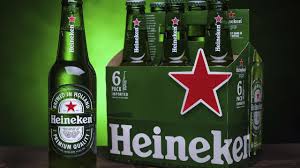The Democratic Republic of Congo (DRC), a nation rich in natural resources yet plagued by protracted conflicts, has found itself at a significant crossroads affecting both its economic trajectory and social fabric. Among the many casualties of its ongoing strife is a Heineken brewery, a pivotal facility that not only contributed to the nation’s economy but also provided livelihoods to local workers. The shuttering of this brewery underscores a broader narrative about the devastating impacts of conflict in the region.
A Brief Overview of the DRC’s Conflict
The DRC has been embroiled in violence since the late 20th century, primarily following the Rwandan Genocide in 1994, which spilled over into the DRC and gave rise to one of the deadliest conflicts in modern history. Over the years, the situation has devolved into a complex tapestry of struggles involving various rebel groups, government forces, and foreign actors, fueled by disputes over resources such as diamonds, gold, and coltan, essential for modern technology.
Heineken’s Investment in Congo
Heineken, one of the world’s leading beverage companies, saw promise in the DRC’s burgeoning market and invested heavily in a brewery near the capital, Kinshasa. Opened in 2016, the facility was not only a step toward local production and self-sufficiency but also created direct employment for hundreds of Congolese workers and supported ancillary local businesses. With local breweries, Heineken aimed to bring refreshing beverages to a population that had historically relied on imports.
The Impact of Factory Closure
However, escalating violence and instability have forced Heineken to suspend operations at its brewery, which is symptomatic of a larger economic malaise. The closure has drastic ramifications, not only for Heineken’s employees but for the entire economy of the region. Local farmers who supplied raw materials for the brewery find themselves in dire straits, as do the service workers reliant on the industry. As unemployment escalates, the ripple effect creates a cycle of poverty, exacerbating social tensions that can lead to further conflict.
Economic Causality and Consequences
The closure of the brewery has a wider economic impact. The DRC’s economy is largely informal and dependent on subsistence agriculture, which means that any disruptions in formal industries can send shockwaves through communities already struggling to make ends meet. With high rates of poverty—around 60% of the population lives on less than $1.90 a day—losing formal jobs not only diminishes purchasing power but also limits economic growth.
Moreover, the DRC has long been rated among the worst countries for doing business, ranked 180 out of 190 countries in the World Bank’s Ease of Doing Business index. The deteriorating security situation only compounds these challenges, making foreign direct investment—and the jobs that come with it—increasingly rare. Heineken’s exit signals to other potential investors that the risk of operating in Congo outweighs the potential benefits.
A Broken Bottleneck of Hope
The closure of the Heineken brewery stands as a stark reminder that the conflict in the DRC is not just a humanitarian crisis but an economic one as well. With instability driving away investment and crippling local employment, the Dream of a robust, self-sufficient economy remains just that—a dream. A peaceful resolution is needed to reverse these damaging dynamics, creating a fertile ground for business and social development.
In the intersecting worlds of global business and local economies, the fall of the Heineken brewery in Congo epitomizes the tragic consequences of ongoing conflict. For communities left in the wake of violence, the hope for economic recovery seems as distant as the prospects of peace. As the DRC treads through its turbulent waters, addressing the root causes of conflict, fostering stability, and restoring trust among stakeholders will be crucial in rewriting its economic narrative.
Email Us on editorial@nnafrica.com













